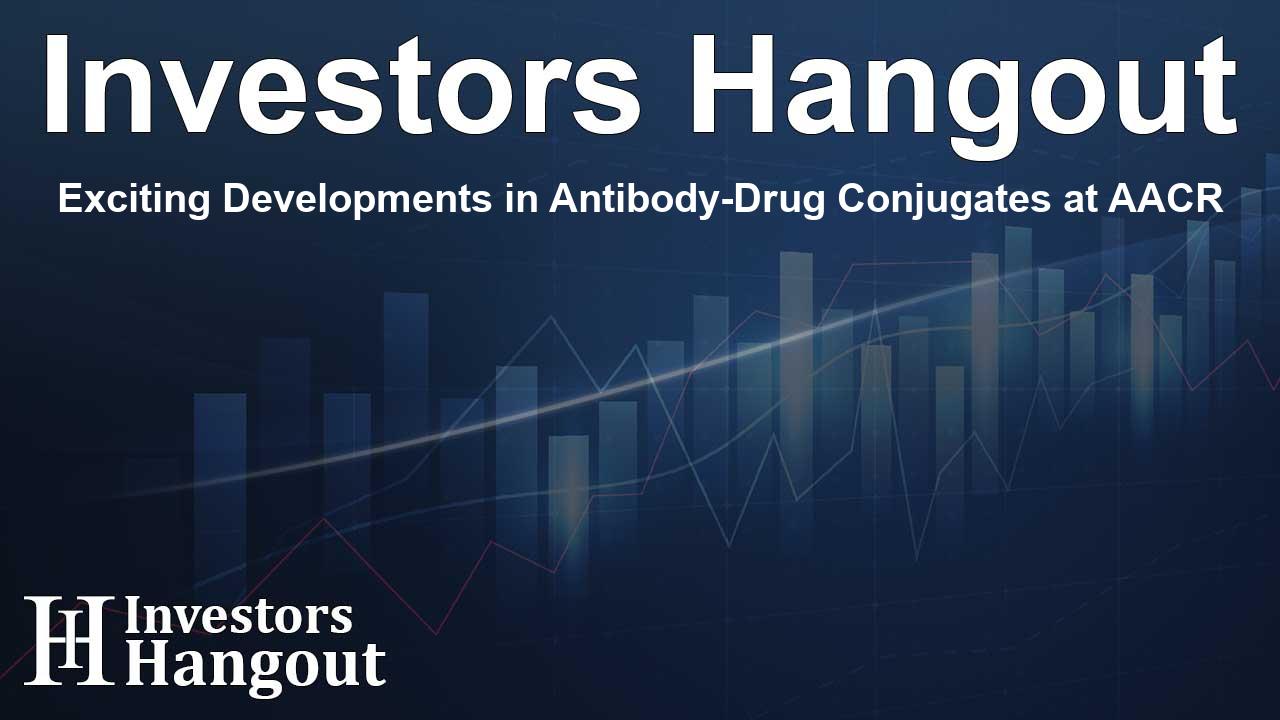Exciting Developments in Antibody-Drug Conjugates at AACR

Antibody-Drug Conjugate Innovations Presented at AACR
Precision Biologics, Inc. is making waves in cancer treatment with its groundbreaking research focusing on a novel antibody-drug conjugate (ADC) leveraging the properties of their monoclonal antibody, PB-223. This development will be showcased in an engaging poster presentation during the upcoming American Association for Cancer Research (AACR) Annual Meeting 2025.
Key Features of PB-223
The spotlight will be on PB-223, an innovative monoclonal antibody that targets core 2 O-glycans prevalent in various human carcinomas. This unique targeting mechanism ensures that the antibody binds specifically to cancerous tissues without affecting normal, healthy cells, making it a promising candidate for effective cancer therapy.
Development of the ADC
The ADC is composed of three critical components: the monoclonal antibody PB-223, a potent cytotoxic payload—monomethyl auristatin E (MMAE), and a suitable linker for effective binding. Properly constructing these elements is vital for maximizing the therapeutic efficacy while minimizing potential side effects. PB-223, for instance, has shown a remarkable improvement in binding affinity, which is essential for effective targeting of tumor cells.
Research Findings
In recent experiments, researchers characterized the ADC to understand its efficacy fully. A critical parameter in ADC performance is the drug-to-antibody ratio (DAR). The development of three different ADC constructs demonstrated promising DARs, indicating a balanced approach to achieving both potency and safety. Specifically, the ADCs PB-MMAE-2, PB-MMAE-5, and PB-MMAE-6 presented DARs of 3.72, 3.92, and 4.15, respectively.
Evaluation of Anti-Cancer Activity
Flow cytometry assessments were conducted using the human ovarian cancer cell line OV-90 to evaluate binding affinity. All constructed ADCs displayed comparable efficacy, effectively inducing cell death in over 80% of treated cancer cells after five days. This achievement suggests that the PB-223 ADCs may offer a substantial enhancement in cancer treatment approaches.
Safety and Stability Analysis
The safety profile of the selected ADC, PB-MMAE-5, was assessed in vivo in rat models. With careful monitoring, no adverse effects were noted, and the ADC was well tolerated, demonstrating optimal safety—a crucial factor in clinical applications. Furthermore, the stability of this ADC in human plasma over several days indicated a robust profile, maintaining therapeutic concentrations that are advantageous for cancer therapies.
Future Perspectives on ADC Therapy
The on-going research underscores the potential of PB-223 and its resulting ADC, PB-vcMMAE-5, in broader clinical settings. The anti-tumor activity observed in xenograft models presents exciting opportunities for future developments, suggesting that this ADC could pave the way for new treatment protocols targeting core 2 O-glycans.
Overall, the introduction of the PB-223 ADC represents a significant leap toward personalized cancer therapies that are more effective and safe. As researchers continue to explore the implications of this work, updates from the AACR Annual Meeting 2025 are highly anticipated by the oncology community.
Frequently Asked Questions
What is PB-223?
PB-223 is a monoclonal antibody designed to specifically target core 2 O-glycans on human cancer cells, enhancing the therapeutic potential against malignancies.
What are antibody-drug conjugates (ADCs)?
ADCs are innovative cancer therapy approaches combining antibodies with cytotoxic agents to selectively deliver treatment to cancer cells while minimizing effects on normal cells.
When will the data on PB-223 be presented?
The presentation of findings related to PB-223 will take place at the AACR Annual Meeting 2025, specifically on April 29.
What is the potential impact of PB-vcMMAE-5?
With promising anti-tumor activities observed, PB-vcMMAE-5 could significantly enhance cancer treatment options and outcomes, pending further evaluations.
Where can more information about the research be found?
Details regarding the research and findings will be available following the AACR meeting, along with the PDF of the poster that will be accessible for the public.
About The Author
Contact Evelyn Baker privately here. Or send an email with ATTN: Evelyn Baker as the subject to contact@investorshangout.com.
About Investors Hangout
Investors Hangout is a leading online stock forum for financial discussion and learning, offering a wide range of free tools and resources. It draws in traders of all levels, who exchange market knowledge, investigate trading tactics, and keep an eye on industry developments in real time. Featuring financial articles, stock message boards, quotes, charts, company profiles, and live news updates. Through cooperative learning and a wealth of informational resources, it helps users from novices creating their first portfolios to experts honing their techniques. Join Investors Hangout today: https://investorshangout.com/
The content of this article is based on factual, publicly available information and does not represent legal, financial, or investment advice. Investors Hangout does not offer financial advice, and the author is not a licensed financial advisor. Consult a qualified advisor before making any financial or investment decisions based on this article. This article should not be considered advice to purchase, sell, or hold any securities or other investments. If any of the material provided here is inaccurate, please contact us for corrections.
